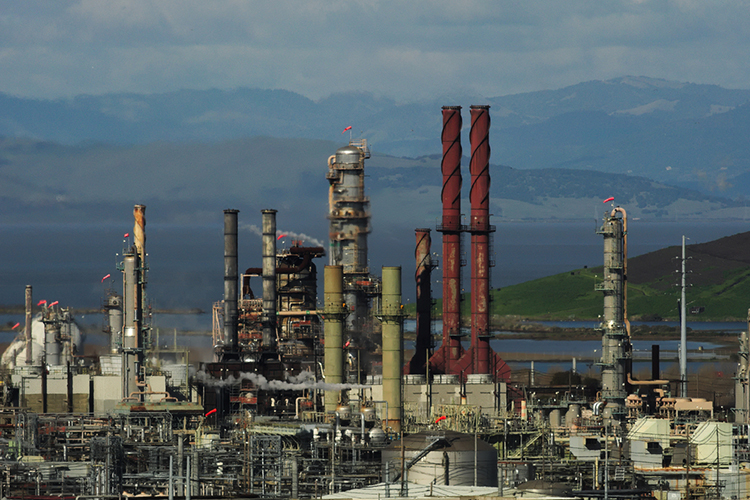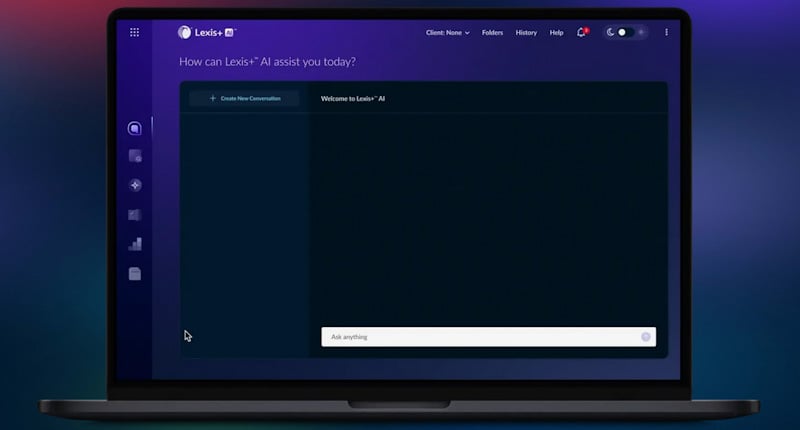Lawyer blasted by judge for conduct in Chevron case should get his law license back, ethics referee says

Chevron Refinery in Richmond, California. Photo by Todd A. Merport/Shutterstock.com.
A special referee is recommending that a lawyer regain his law license, despite a federal judge’s finding that the lawyer obtained a fraudulent judgment against Chevron in Ecuador.
The referee, John Horan, said in a Feb. 24 report that lawyer Steven Donziger’s interim suspension should be ended, and he should be allowed to resume the practice of law. The case goes to a New York appeals court, which will decide whether to accept the recommendation.
The New York Law Journal, Courthouse News Service and Forbes have coverage.
Disbarment “impresses me as too extreme,” Horan said. “Nor do I think there are precedents which control. There appears to be no case like this.”
The $9.5 billion Ecuador judgment was based on allegations that Texaco, a company acquired by Chevron, had caused environmental damages in Ecuador’s Lago Agrio region through oil exploration work.
In a 2014 decision, U.S. District Judge Lewis Kaplan had blocked Donziger’s ability to collect the judgment.
Ruling in a civil racketeering suit by Chevron, Kaplan had found that Donziger’s legal team engaged in bribery, coercion and money laundering.
When the U.S. attorney’s office declined to pursue criminal charges against Donziger, Kaplan appointed a special prosecutor. Kaplan also ordered Donziger to pay $3.4 million in attorney fees to Chevron for blocking the oil company’s efforts to get at the facts.
The sanction is in addition to court fees, attorney fees and fines that bring the total owed to about $10 million, Donziger previously told the ABA Journal.
Building on Kaplan’s findings, an attorney grievance committee accused Donziger of coercing and bribing judges in Ecuador, corrupting an expert in Ecuador, ghostwriting an expert’s report in Ecuador, obstruction of justice in the United States, and witness tampering in the United States.
Because of an appellate ruling, Horan was bound by the facts of the Chevron case as determined by Kaplan.
Horan concluded, however, that Kaplan’s decision “is entitled to considerable weight but not necessarily, in these unique circumstances, decisive weight.”
Horan appeared skeptical about Kaplan’s findings.
No court in Ecuador found that the judgment was corrupt, Horan said. He also noted that Kaplan had granted a worldwide injunction blocking the Ecuador judgment, which was reversed by an appeals court. In addition, Kaplan had noted that Chevron was “of considerable importance to our economy,” a statement that showed Kaplan’s regard for Chevron, Horan said.
Horan allowed Donziger to testify, so he could explain why he has not shown any remorse. “It is not my place to challenge Judge Kaplan’s findings per se; but it is my place to allow respondent facing the most serious sanction of disbarment to explain himself as fully as he can without encroaching unduly on the boundary of collateral estoppel,” Horan wrote.
Donziger, who denied the allegations, “was candid and clear and showed no sign of dissembling or evasiveness,” Horan said.
Donziger said he hired local counsel in Ecuador, and he wasn’t very involved in the suit on a day-to-day basis.
Donziger testified that it was fairly common to threaten to report a judge for inaction, and experts were generally paid directly in Ecuador rather than through the court.
Several character witnesses spoke on Donziger’s behalf, including an associate director of Amazon Watch, a Greenpeace co-founder, and Pink Floyd musician Roger Waters.
In addition, Donziger’s initial lawyer in Kaplan’s court, John Watkins Keker of Keker, Van Nest & Peters, said the trial proceedings were unfair and a farce, and he faced 160 lawyers working for Chevron on the case. He said he withdrew when it became clear that Kaplan would rule for Chevron.
Horan said Donziger was pursued relentlessly by Chevron, putting him in a difficult financial position.
“The extent of his pursuit by Chevron is so extravagant, and at this point so unnecessary and punitive, while not a factor in my recommendation, is nonetheless background to it,” Horan said. “He has lost the Lago Agrio judgment, his fee as well, and is besieged with litigation by Chevron and faces severe financial burdens.”
Although Horan recommended that Donziger regain his law license, Horan said Donziger should be subject to an accounting for his treatment of client funds and donations.
Doran expressed concern about Donziger’s handling of money that he had accepted from investors in the Ecuador case. Donziger’s “testimony about where the funds of investors went and how they were accounted for was general, somewhat vague, and on the whole not satisfactory,” Horan said.
Donziger did not set up a proper attorney trust account, and he also failed to file tax returns for three years, Horan said.
“Notwithstanding his deficient accounting practices,” Donziger does not appear to be a threat to his clients, Horan concluded.
Donziger told the New York Law Journal that it took courage for Horan to reach his conclusions.
“The hearing officer was not allowed to address what I believe is the falsity of Judge Kaplan’s findings,” Donziger told the publication. “But the hearing officer was allowed to speak the truth about my character and my value to the public interest.”
Chevron lawyer Randy Mastro told the New York Law Journal and Courthouse News Service that the referee’s report appears to be contrary to the appeals court directive that Kaplan’s findings were binding.
“While Chevron was not a party to these state disciplinary proceedings, the referee’s non-binding recommendation to the court has essentially ignored findings of fact—after a several-week trial before one of the nation’s most respected federal judges—that Donziger committed racketeering, mail and wire fraud, extortion, bribery and multiple other offenses,” he wrote in an email. “And that judgment and findings against Donziger were then unanimously affirmed on appeal. If those damning findings against an attorney don’t warrant sanctions, what ever would?”



